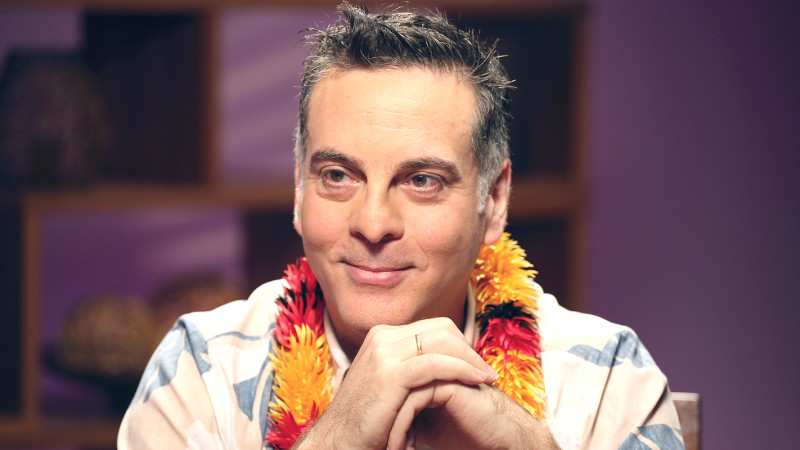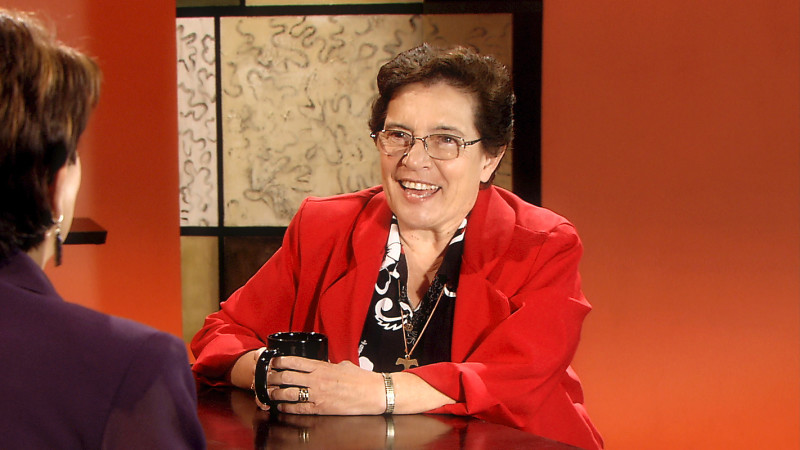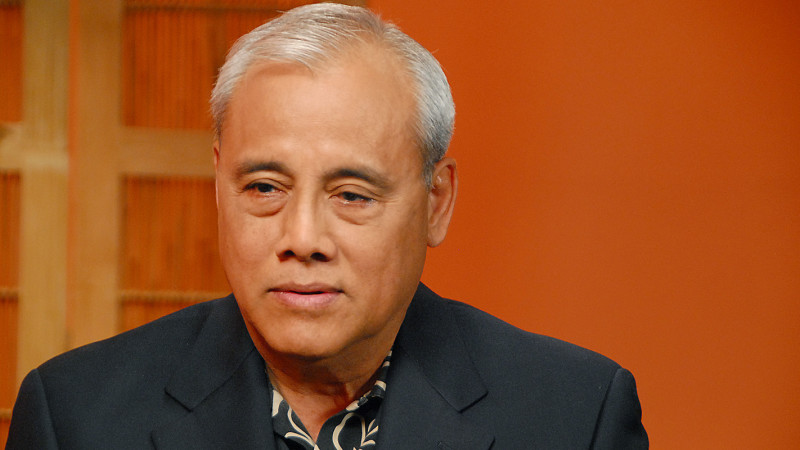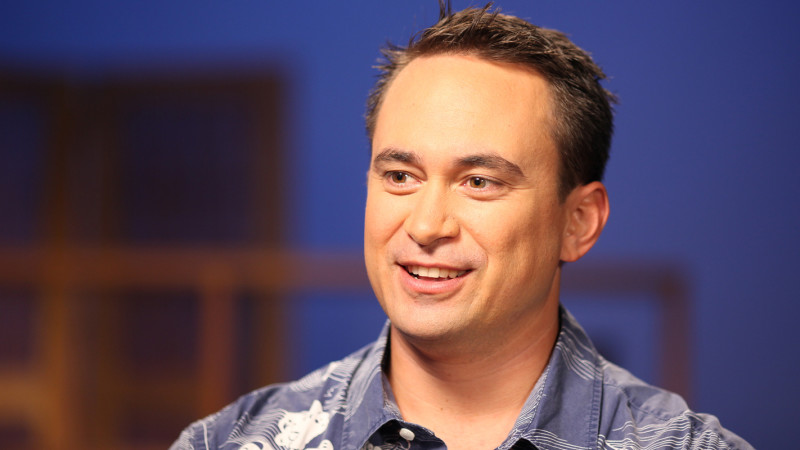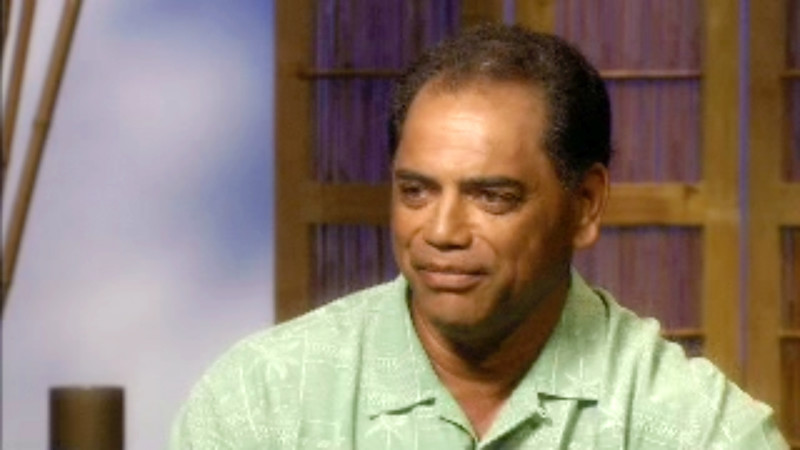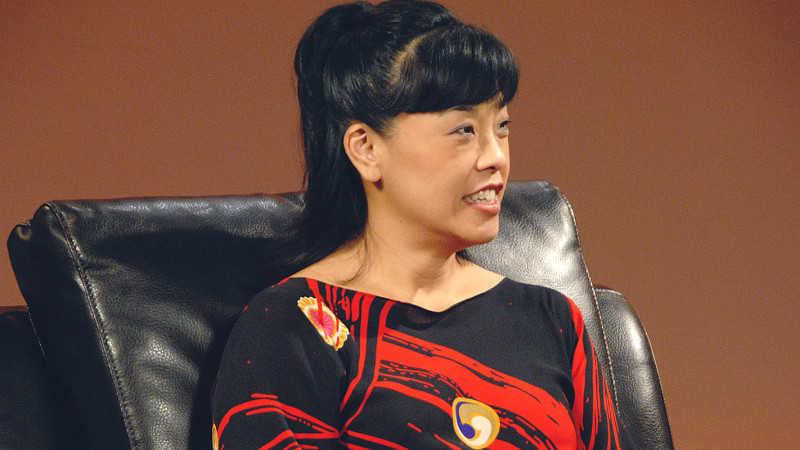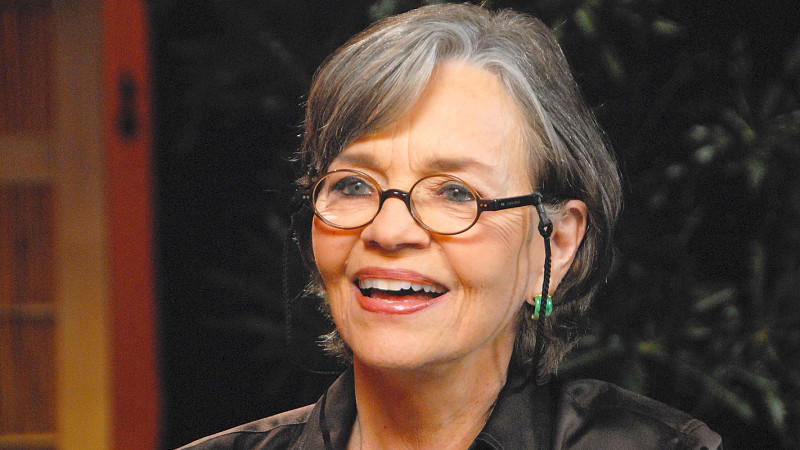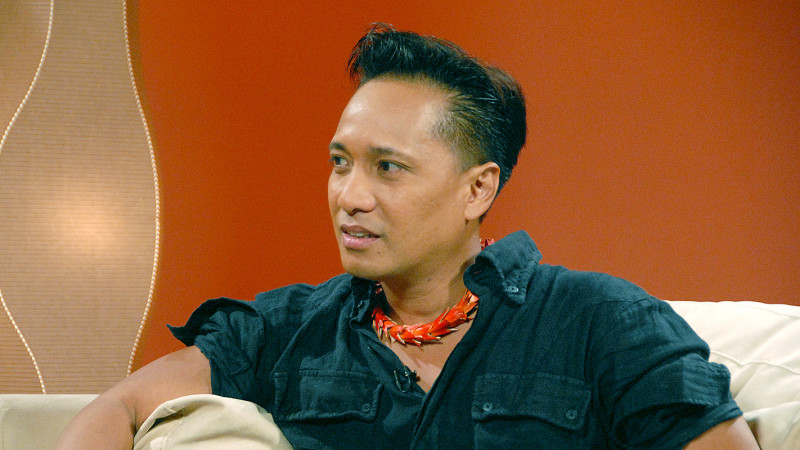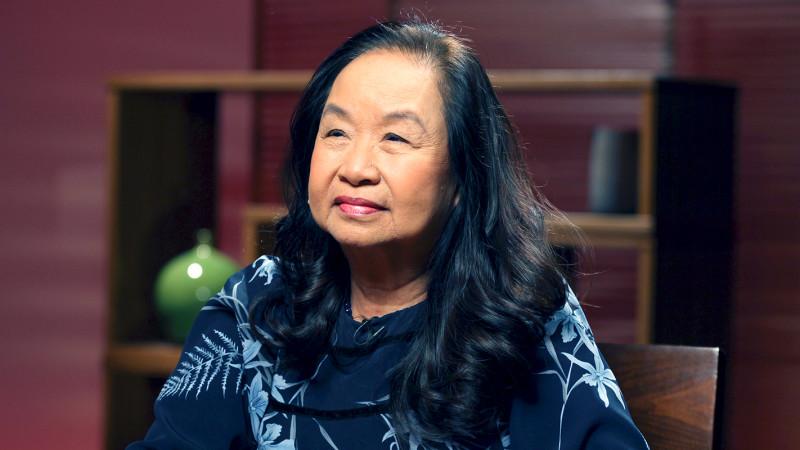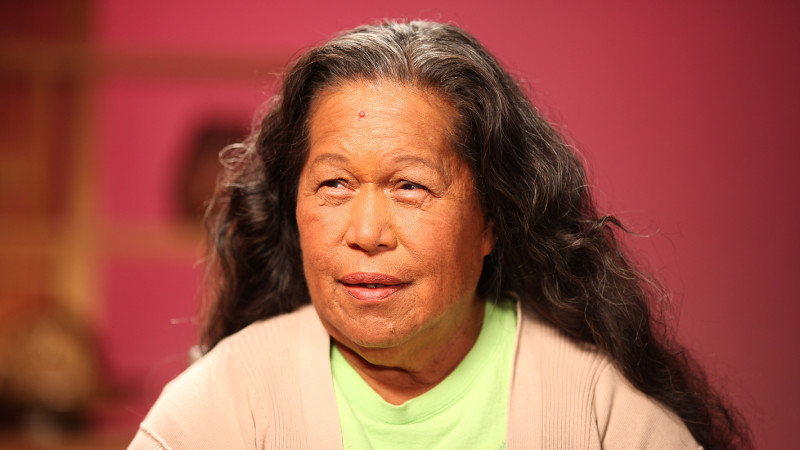Leslie Wilcox talks with Wayne Rapozo, an attorney and partner at Dechert, a top international law firm in London. Born and raised on Kauai, Rapozo knew he wanted to practice law at a young age. Though he lives in London, Rapozo keeps Hawaii close to heart. He helps Hawaii's underserved youth through a scholarship fund, works closely with a Kauai charter school, and hosted Nanakuli drama students when they visited the UK.
Sister Joan of Arc Souza is the principal of St. Francis school in Manoa. Souza graduated from St. Francis when it was an all-girls school, but during tenure as principal she turned the school co-ed and has made numerous innovations, such as a band program; cinematography classes; a four-year American Sign Language Program; and a pre-school.
Thomas Kaulukukui Jr. grew up in the Honolulu valley of Kuliouou as the son of a Hawaii legend. Despite his father’s small stature and slight limp, he became Hawaii’s first all American college football player. He was a humble man, a fine coach, and a State and Federal public official who quietly brought people together. Hear from this former State Judge and managing trustee of the Queen Liliuokalani Trust on his life of community leadership;
On this episode of Long Story Short with Leslie Wilcox is Hoala Greevy, founder of one of the earliest locally owned email spam and virus filtering companies, Pau Spam. The son of Hawaii community activists, Hoala is intent on his career and dedicated to his business, sometimes working so late he sleeps in his office. Later in life, he intends to be part of the solution in addressing social issues affecting Native Hawaiians. Many Native Hawaiians believe children grow into their name. Hoala's Hawaiian name, which came to his mother in a dream, means "awakening" or "new beginning."
Leslie Wilcox talks story with Corbett Kalama, Executive Vice President and Region Manager at the Oahu Office of First Hawaiian Bank and Bishop Estate Trustee. Corbett comes from humble beginnings - he grew up in a 900-square-foot house in Kailua with a family of 13 - but his road to success was not the typical dog-eat-dog climb up the corporate ladder. It was, instead, formed by his family's Hawaiian values of family, education, and community.
Anne Namba is the creator of a fashion line blending vintage Japanese fabrics and contemporary fashion, “kimono couture.” Her brand, Anne Namba Designs, is being picked up nationally by Nordstrom’s and is featured in other select Mainland stores. Anne graduated from Kalani High School and went on to the prestigious Fashion Institute of Technology in New York City. After stints in the garment industry in New York and L.A., Anne started her own business.
The work of artist Pegge Hopper is a familiar sight in many island hotels, offices and homes. Originally from California, Peggy arrived in the islands in 1963. She has since made an enduring contribution to the Hawaii art scene with her distinctive paintings of Hawaiian women. Pegge has held one person shows in Chicago, Los Angeles and Seattle and maintains a gallery in downtown Honolulu's Chinatown area to showcase her original paintings and drawings. Join Leslie Wilcox as she talks story with Pegge about a career that spans five decades.
What does it mean to be an artist? For Peter Rockford Espiritu, it’s a lifelong journey of creative expression through dance. Peter is founder, choreographer and artistic director of Tau Dance Theater, a dance company that combines ballet, modern dance, hula and Pacific Island traditions into something completely original.
Original air date: Tues., Jan. 22, 2013 Part 1 Different Shores Leslie Wilcox talks with Dr. Tin Myaing Thein, women’s advocate, community organizer and executive director of the Pacific Gateway Center. When Dr. Thein was an infant, her family evaded Japanese armies that were occupying Burma (now Myanmar) during World War II.
"It takes a village to raise a child." For Alice Greenwood, it's a theme that repeats itself throughout her life. In this conversation with Leslie Wilcox, the Waianae community advocate talks about how a series of unforeseen events left her homeless for nine months. Through stories of illness, racism and squalor, Greenwood touches on themes of courage, determination and compassion.


